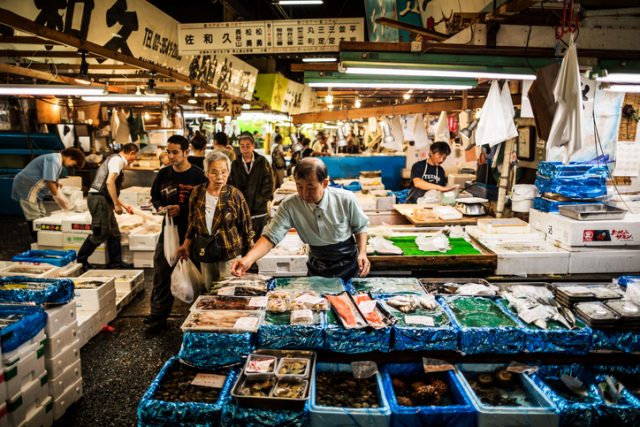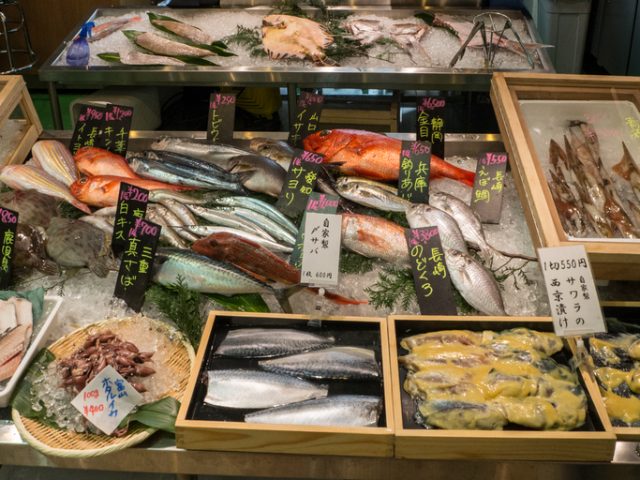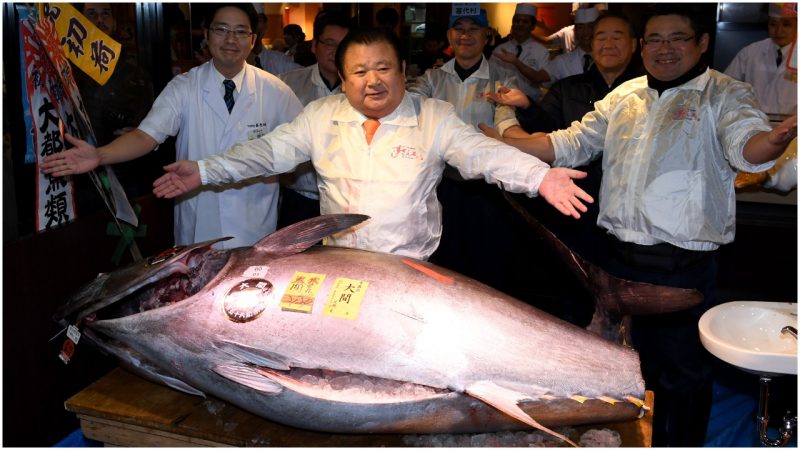“A fish gets bigger when it gets away.” — Japanese proverb
On January 5, 2018, a wild bluefin tuna weighing 890 pounds was sold for $323,000 at Tokyo’s Tsukiji Fish Market at the highly publicized annual auction that celebrates the new year’s arrival. This particular bluefin was the most expensive fish sold that day, but it was far from a record-breaking amount for this event. After all, in January 2013, a bluefin tuna weighing 489 pounds was auctioned for the equivalent of $1.8 million.
This year’s winner is, unsurprisingly, the operator of several high-end sushi restaurants in Tokyo and plans to turn the prize fish into 13,000 pieces of sushi, according to the Financial Times. “I’ve tried to win in the auction since last year, so I‘m really happy,” said Hiroshi Onodera, whose company has restaurants in New York and Singapore as well as in Japan. At his establishment on 5th Avenue in Manhattan, Sushi Ginza Onodera, the Omakase Course is priced at $300 and $400 for the Premium “Kiwami” Course, translating to “pinnacle” and “highest place.”
The Tokyo fish market where the Pacific bluefin was auctioned is expected to close soon. It launched in 1935, and the facilities have become obsolete, although it has served as a popular tourist attraction in the city as well as a market with warrens of stall for fish, some of them quite exotic. The Tokyo Metropolitan Government plans to move it to the nearby Toyosu waterfront district.

Masahiro Takeuchi, the 66-year-old fisherman who caught the 2018-winning bluefin in Oma, Aomori Prefecture, told reporters, “I am extremely happy. Oma’s maguro is the best in the world.”
Not everyone is ecstatic over the sky-high prices and furious demand for bluefin tuna, prized as sushi and sashimi and often described as the most expensive fish in the world.
“The high price paid today for a single Pacific bluefin tuna should not distract from the dire status of the species, which has been depleted by more than 97 percent by years of overfishing,” said Jamie Gibbon, a Pacific bluefin tuna expert for the Pew Charitable Trusts, in a statement released by Reuters. “If countries continue to exceed their catch limits…the very survival of the species will be threatened.”
Beginning in 2018, Japan will start enforcing the penal regulations on Pacific bluefin tuna caught by its fishermen, following the stricter international controls aimed at overfishing.

The Western and Central Pacific Fisheries Commission allocates catch quotas to its members, including Japan and the United States. On the basis of the national quota, Japan distributes portions to domestic fishermen, but some fishermen have caught more than permitted. Under the new penal regulations, fishermen will be required to submit periodic reports on details of their hauls and the agency will be authorized to order fishermen to suspend operations if their catches are likely to break the rules.
Fishermen who violate the rules could face a prison term of up to three years or a steep fine.

There is no question that the relationship between fish and Japan is a special one. In the BBC documentary “Fish: A National Obsession,” Charles Rangeley Wilson, author, journalist and BBC 2’s Accidental Angler, traveled to Japan to explore its people’s passionate relationship to fish. His premise was that of all the island nations on Earth, there is, perhaps, none quite so obsessed by fish as Japan. Whether for food or entertainment, fish are at the very core of Japanese identity. From their reverential love of jewel-like koi to the world of scientific whaling, there are few corners of Japanese culture that have not been shaped by reference to fish.
In the program, Wilson tours the Tsukiji Market, saying, “Fresh is everything in Japan, unsurprising in a hot, crowded country completely dependent on the ocean for its protein; the 122 million people of Japan eat one-tenth of the world’s supply of fish.”
Regarding a bluefin tuna, he says, “It is incredibly valuable. What they’re buying is not so much fish but scarcity.”
